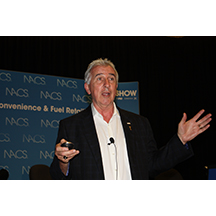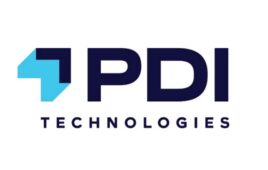 NACS 2015 kicks off with education sessions that strike at the core of c-store operations.
NACS 2015 kicks off with education sessions that strike at the core of c-store operations.
By David Bennett, Senior Editor
In the session, Preparing Your Infrastructure for Future Fuels, Norman Turiano, principal of Turiano Strategic Consulting, theorized that because gasoline costs will likely rise again, alternative fuel vehicles (AFV) will continue to increase in number and price stability for compressed natural gas (CNG) will continue for foreseeable future, retailers must consider how alternative fuel service fits into their business plans.
According to Turiano, retailers must also consider the feasibility of committing to a significant capital investment in related infrastructure.
Jay Ricker, chairman and founder of Anderson, Ind.-based Ricker Oil Co., said the convenience chain has installed some electric vehicle level three chargers to accommodate some electric vehicles as a pilot. For significant capital investment in fuel options such as E15 and E85 fuels, serious consideration must be paid to infrastructure including new underground tanks that might be needed, as well as what future payoff alternative fuels offer.
Right now, Ricker’s is holding off such an investment.
“I think it’s complicated to put it in,” Ricker said, referring to new underground tanks for E15. “I’m concerned about misfueling. I think it’s too early.”
Scott Minton, marketing manager of Stillwater, Okla.-based OnCue Express, has seen significant success in the company’s strategy to add CNG to its locations. Of 47 stations, the company plans to add four to six new CNG-selling sites per year. The company does enjoy some bigger commercial fleet customers to justify the investment, along with the belief that prices will remain stable for the coming years.
“We haven’t changed the price for CNG for the last 18 months,” Minton said. That price is $1.69 per gallon.
SWITCHING TO EMPLOYEES
During a session labeled Purpose-Driven Employees, Lance Davis, director of human resources and risk management at Kwik Chek Food Stores of Leonard, Texas, told attendees that many c-stores can do a better job in cultivating their best resources: employees.
However, before c-stores can improve their workforce with employees who challenge themselves and help problem solve, companies need to look at their propose, people and values, which will ultimately create the desired work environment where workers will feel engaged.
“To truly understand people and purpose, you must have the proper perspective,” David said.
David Hite, manager of training and development at Mountain Empire Oil Co., based in Tennessee, has helped develop several initiatives meant to help employees master their jobs, gain more autonomy and derive more purpose from their job.
Some of those tools include an educational scholarship program for eligible workers, job satisfaction surveys, store manager coaching and personal development workshops.
BEYOND THE BRAND
Neil Roan, principal of the Roan Group, has extensive experience advising retailers in processes for strengthening their brands. In a session entitled Competing Beyond the Brand, Roan told attendees that learning to “walk your brand,” rather than just talking it up is a hard task, requiring commitment.
One of the key ways that retailers can deliver on the brand is delivering on what they promise, whether it’s a great cup of coffee, or a great hot dog. Failing to deliver is the road to losing customers.
“To make venues predictable, make the experience predictable,” Roan said. To accomplish this, Roan said retailers must reach customers “in the heart, not the head,” or by connecting with them on an emotional level. Once that friendly relationship is established, retailers can boost profitability through customer retention.




